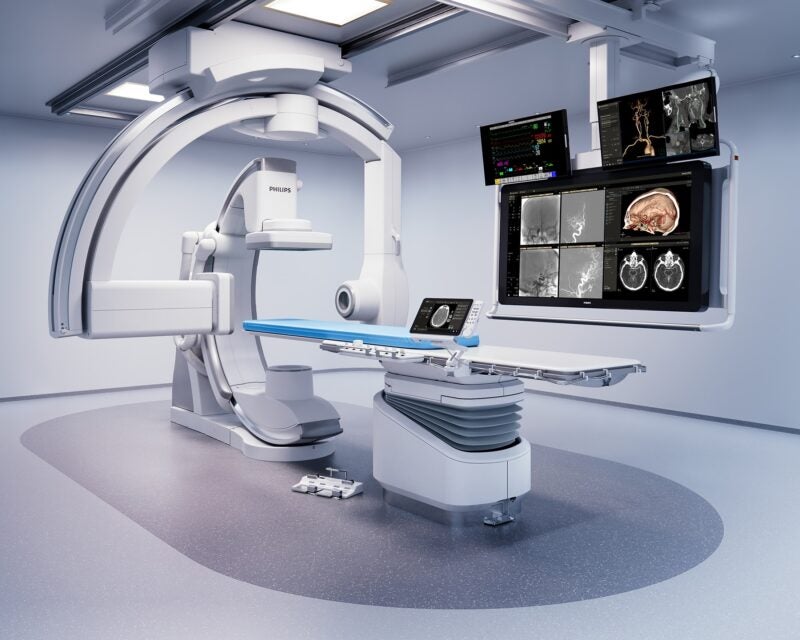
Royal Philips has further enhanced its Azurion image-guided therapy system with the launch of its new Azurion neuro biplane system for neurovascular interventions.
The company has designed the new Azurion neuro biplane system to streamline neurovascular procedures and aid care teams in making fast and right decisions.
The interventional system, which has enhanced 2D and 3D imaging and X-ray detector positioning flexibility, also allows the treatment of more patients and achieves better outcomes.
The Dutch health technology company claims that the new Azurion neuro biplane system improves the experience of both staff and patients while lowering the costs of care.
Philips’ new interventional system is intended to optimise and improve procedure workflows in situations where a precise diagnosis and treatment plan require a combination of 2D and 3D imaging.
It uses the health technology firm’s latest Neuro Suite software and services to offer neuro-interventionists a fully integrated solution.
This solution is said to combine Philips’ ClarityIQ low-dose imaging technology with a variety of neuro-specific tools and services to deliver more efficiency, flexibility, and control.
Other new features include enhanced C-arm rotation, angulation, and parking facilities for fast transitioning between 2D and 3D imaging.
Additionally, the new system has a complete table-side control that removes the need to exit the sterile field, automatic beam rotation to obtain correctly oriented images, and a new head immobiliser to support enhanced stroke care.
Philips Image Guided Therapy Systems business leader Mark Stoffels said: “Working closely with leading interventionists, we designed the latest Azurion neuro biplane to meet their requirements of superior patient care, optimised angio suite performance, and efficient return on investment.
“Together, I am confident we can continue to reduce the impact of stroke, helping more patients to recover faster and reducing long-term impact on their health.”
The Amsterdam-based medtech giant is also optimising the uptime of its angio suite solutions by using artificial intelligence and machine learning to monitor system performance.
Angio suite solutions will now use the remote connection services of the Philips ServiceHub to communicate, monitor and proactively respond to potential service issues.






